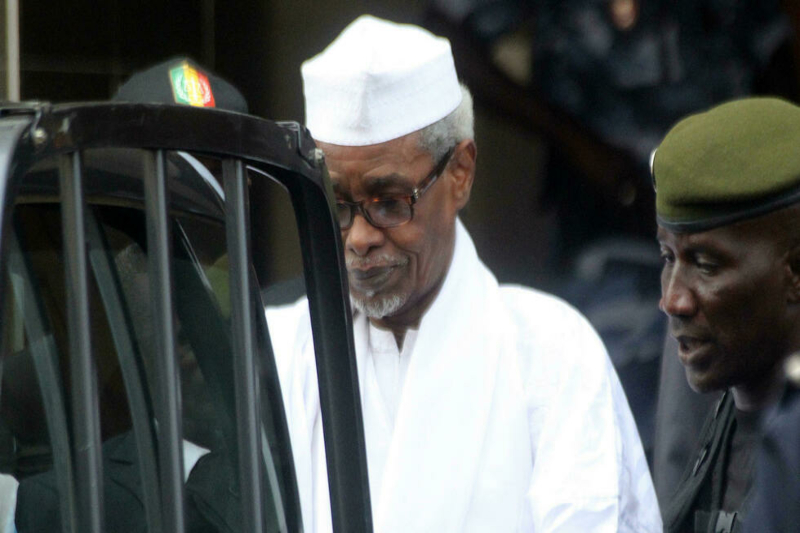
Hissène Habré, the former President of Chad, died at the age of 79
Senegalese Justice Minister Malick Sall announced Tuesday that former Chadian President Hissène Habré had died at the age of 79 in Senegal, where he was sentenced to life in prison for crimes against humanity after an unprecedented trial. He died of Covid-19, according to Senegalese media.
Hissène Habré, the former president of Chad from 1982 to 1990, was sentenced to life in prison on 30 May 2016 in Dakar after being found guilty of crimes including rape, murder, slavery, and kidnapping. According to a Chadian judicial commission of inquiry, 40,000 people died as a result of the Habré regime’s repression. Hissène Habré, who had been deposed in 1990, had sought refuge in Senegal as a result of international pressure, where he was arrested in 2013 and charged by a special court established in collaboration with the African Union.
Who was Chad’s former president, Hissène Habré?
He was born in 1942 in Faya-Largeau (north) and grew up among nomadic shepherds in the Djourab desert. His teachers remarked on his intelligence. In 1963, he left to study at the Institut des Hautes Études d’Outre-mer in France after becoming a sub-prefect. He went on to study law in Paris, where he attended the Institute of Political Studies and devoured the works of Frantz Fanon, Ernesto “Che” Guevara, and Raymond Aron.
He joined the Chad National Liberation Front (Frolinat), eventually becoming its leader, before forming the Council of the Armed Forces of the North with another northerner, Goukouni Weddeye (Fan). In 1974, he made a name for himself by kidnapping French ethnologist Françoise Claustre and forcing France to negotiate with the rebels for three years.
Related Posts
He served as Prime Minister under President Felix Malloum, with whom he had a falling out, and then as Minister of Defense under Goukouni Weddeye, President of the Government of National Unity, which was formed in 1979. He broke with his former ally shortly after, triggering a civil war in N’Djamena, which he had to evacuate in late 1980. He was a staunch nationalist and fiercely opposed to Muammar Gaddafi, the Libyan leader at the time, who had Weddeye’s sympathies. He fought Goukouni Weddeye, supported by Tripoli, from eastern Chad, where he had gone back into hiding, and returned to N’Djamena victorious in 1982.
His eight-year regime, which was backed by France and the US against Gaddafi, lasted eight years. Opponents-real or imagined-were arrested by the Documentation and Security Directorate (DDS, political police), tortured, and often executed during this period. During his reign, a commission of inquiry estimated that over 40,000 people died in detention or were executed, with 4,000 of them being named.
Habré fled N’Djamena in a hurry in December 1990, fleeing the rebel blitzkrieg of Idriss Déby Itno, one of his generals who had defected 18 months before and invaded the country from Sudan. President Déby would rule Chad with an iron fist for 30 years, until he was assassinated by Libyan rebels in April 2021. Habré was driven from power and sought refuge in Dakar, where he lived in peace for the next two decades.
He traded his fatigues and khaki cap for a large boubou and a white cap when he arrived in Senegal. He is a practicing Muslim who is well-liked by his neighbors, with whom he prays during religious holidays, and is as quiet as he is generous, contributing to mosque construction and soccer club funding. Residents of the Ouakam neighborhood show their support for Mr. Habré, pointing out that he has a Senegalese wife and children, when Senegalese President Abdoulaye Wade is under pressure and wants to expel him.
On June 30, 2013, he was finally apprehended in Dakar and charged by a special court established under an agreement between the African Union and Senegal. On July 20, 2015, his trial began, marking the first time in the world that a former head of state has been brought before a court in another country for alleged human rights violations. He was sentenced to life in prison on May 30, 2016, for war crimes, crimes against humanity, torture, and rape.




